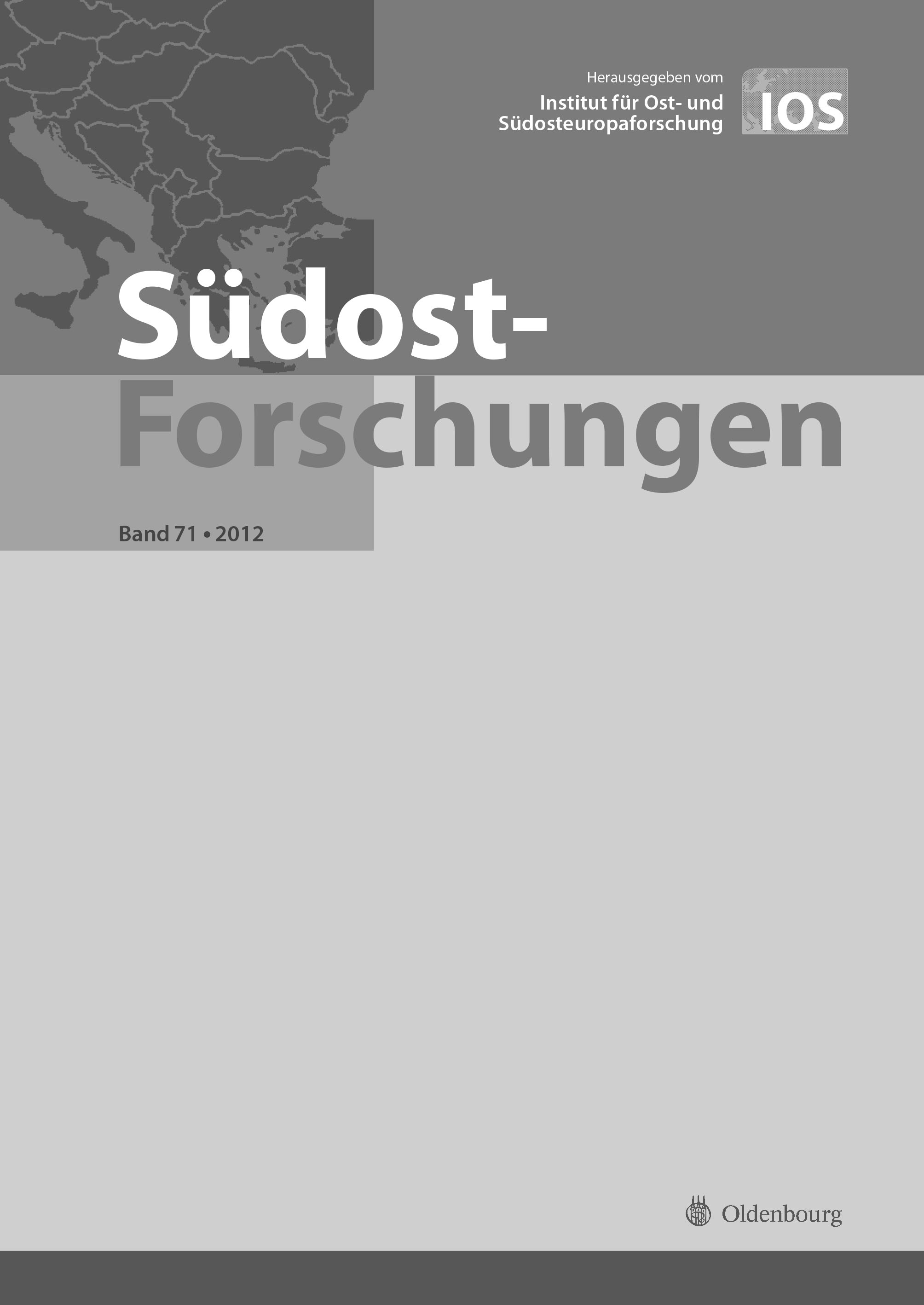Das panslawische Feindbild im Griechenland des 19. und 20. Jahrhunderts
Greek Pan-Slavic Threat Perceptions in the 19th and 20th Centuries
Author(s): Adamantios SkordosSubject(s): Military history, Political history, 19th Century, Interwar Period (1920 - 1939), WW II and following years (1940 - 1949), Post-War period (1950 - 1989), The Ottoman Empire
Published by: De Gruyter Oldenbourg
Summary/Abstract: The main focus of this article is the integrative impact of perceived “Pan-Slavic” threats and anti-Slav discourse for the non-Slavic speaking national Greek community. Following a chronological development, the first part of the article examines the relationship between the Greeks and South Slavs in the first half of the 19th century. During that period the majority of the Greek peoples considered the South Slavs as “allies” in a “common fight” to liberate South-East Europe from Ottoman rule and to “restore” a Greek-dominated “Byzantine Empire”. The second and the third part of the article demonstrates how this perception drastically shifted in the second half of the 19th century with focus on particular caesura: the outbreak of the Crimean War 1853, the establishment of an independent Bulgarian church 1870, and the radicalization of the Macedonian Question at the end of the 19th century. From the Greek point of view the “anti-Hellenic” Bulgarian movement in Ottoman Macedonia was the result of never-ending Russian “Panslavic” aspirations, which aimed to displace Hellenism from the Balkans and create a Russian Byzantine Empire. The fourth part of the article deals with the Greek Civil War during the 1940s. After the liberation of Greece in 1944, the guerrilla war between partisans escalated into a three-year civil war between the “legal” Athenian regime and the communist “Democratic Army of Greece”. During this conflict, the demonization of communist Pan-slavism developed into one of the central components of Anti-Communist Camp’s supposedly “national-minded” ideology. From their point of view, they led a “noble” struggle for the salvation of Hellenism from Slavicization, claiming that the struggle against “Slavocommunism” was not about the maintenance of the political or social system, but rather the “survival” of the nation in the face of an attack of “200 million Slavs”. In this way, the communist threat was assimilated into a longstanding tradition of anti-Slavic sentiment and continued until 1974 as an important ideological foundation of post-war Greek state.
Journal: Südost-Forschungen
- Issue Year: 2012
- Issue No: 71
- Page Range: 76-105
- Page Count: 30
- Language: German
- Content File-PDF

